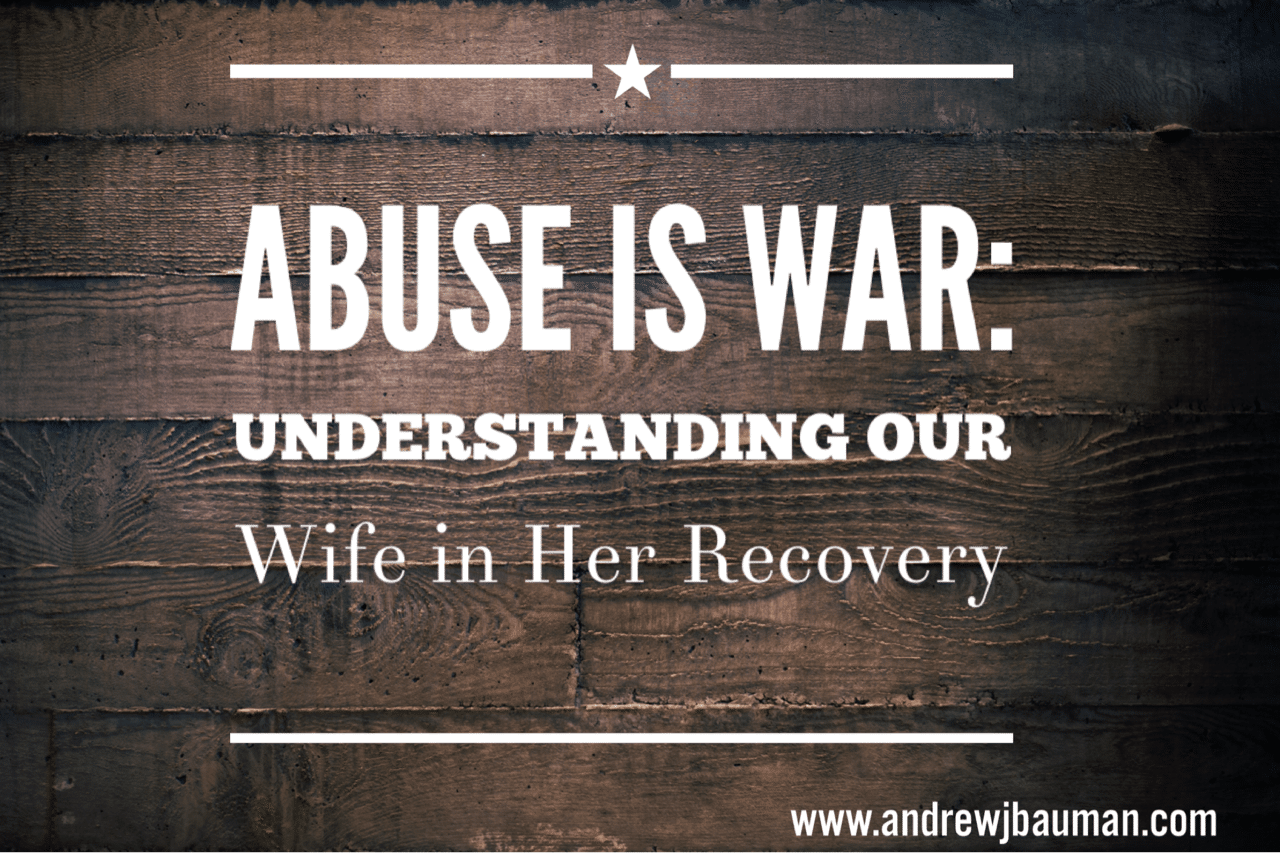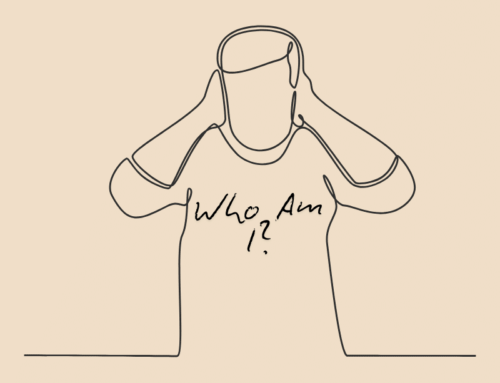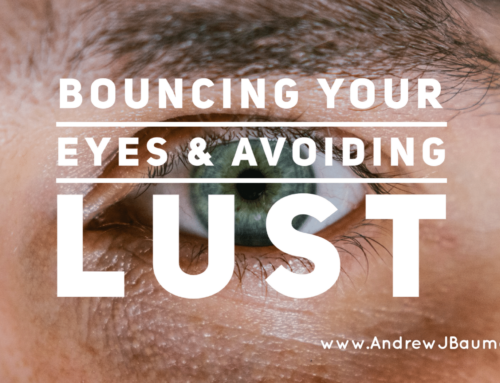General William Sherman once said, “War is Hell” and I completely agree. I would also say abuse is war, just a different type. The hell that a woman bears by living with an insecure, defensive, and reactive husband can leave her with PTSD similar to that of a veteran returning from the hell of war. Our bodies are not meant to bear verbal, physical, sexual, spiritual, psychological, emotional, or financial abuse. If your spouse has encountered any of these types of abusive behaviors there will most likely be a lasting impact on her body. You must learn how to trust her awareness of her body, and engage her with kindness and wisdom.
We can more fully understand the process of our wife’s healing journey rather than continue to do harm. The first step is to be willing to wait as long as it takes for her to choose when and how to trust again. Her healing will likely not happen on your time schedule, and you should not expect it to. She may even decide that her healing means she can’t be around you, either temporarily or permanently. But if she is willing to consider rebuilding trust, know that it will be a long road. Trust her to know what she needs, and give her your humility and gentleness when she is willing to accept it.
The U.S. News & World Report cites the U.S. Department of Veterans Affairs statistics on PTSD.
- “About 11 to 20 out of every 100 veterans (or between 11 and 20%) who served in operations Iraqi Freedom and Enduring Freedom have PTSD in a given year.
- About 15 out of every 100 Vietnam veterans (15%) were currently diagnosed with PTSD when the most recent study of them (the National Vietnam Veteran Readjustment Study) was conducted in the late 1980s. It’s believed that 30% of Vietnam veterans have had PTSD in their lifetime.” (Howley, 2019)
When we look at the global statistics on male violence against women it is even worse. The World Health Organization reports that “about one in three (30%) women worldwide have been subjected to either physical and/or sexual intimate partner violence or non-partner sexual violence in their lifetime.” They go on to say that “almost one-third (27%) of women aged 15-49 years who have been in a relationship report that they have been subjected to some form of physical and/or sexual violence by their intimate partner.” From my rough calculations that could be up to 1,054,276,382 women worldwide possibly suffering from PTSD from abuse. Read that number again! And that doesn’t include emotional, spiritual, financial, or even verbal abuse. I assume that number is far higher if we included all the different forms of abuse where we can assert our power and control.
Not only do we need to acknowledge that she has lived through war, but we must tell the truth—admit that you were the combatant. You were the one launching covert, and not so covert, attacks. With this framework in mind, can you see how difficult it would be for her to open her heart, her body, to trust you again? After hurting her so deeply and for so long, what would it take to allow her enemy back into her world and to feel truly safe again? Do you see how much courage this will take?
She may be made a fool again. She may get her heart pummeled by your callousness, your clumsy hands, or lack of emotional intelligence. To be a safe and healthy lover you must understand more fully the cost of re-establishing trust with yourself. You can argue, “Andrew, I am not her enemy; I am her husband.” Yet, the trauma from your behavior has left a warlike impact on her body and her soul.
Here are a few practical steps to helping your wife recover from your abuse.
1. Instead of trying to fix her, be a safe and loving presence with her as she needs to rage, vent, and grieve. She is trying to make sense of it all, is counting the high cost and making sure you are for real. She has heard your promises time and time again, she is watching to see if you actually live differently. Even if things are going well now, and you are becoming a safe and good man, she will still be feeling a lot. She will still be pissed because the goodness that you are experiencing now will remind her of all the time that was lost when you were acting out, and the hell she went through with you. Be gentle as she recovers. Remember that she is in recovery from your destruction, learning how to walk again, learning how to live after the war. Just like someone who has lost a leg in battle, your wife will need your support as she relearns the dance of intimacy and repair.
2. If she needs to leave (i.e., separation or divorce), let her do so. You can love her well by allowing her freedom. Previously, you have grasped for control; now you must surrender. It will be terrifying, but engaging the terror head-on will force you into maturity and healing. You can let her know how much you love her, but first and foremost, you want her to feel safe. You may have done too much damage for her to remain. You are the one who broke the marriage vows (i.e., porn, abuse, being unfaithful in other ways). This isn’t giving up on the marriage, but actually fighting for the marriage to be reborn without the old dynamics of power, control, and insecurity mixed with genuine intimacy and love. Also it may be you that needs to leave the home if she is asking for space. You are the one who did the damage and you need to embrace the consequences to abusive actions.
3. Be a kung fu master! What I mean by this is, do you remember the old Kung Fu show of the 1970s? If not, it is must-see TV. The kung fu master is calm and moves with ease; his foe is punching at full speed, sweating, and working so hard. The master moves with fluidity, to the right and to the left, dodging punches smoothly. Maybe your wife is triggered in full PTSD mode from your abuse and she is lashing out. You don’t need to lash back. Learn to dodge the hits with wisdom, calm, discipline, and maturity. Being a kung fu master can help you love yourself and your traumatized partner well.
We have an epidemic of male violence that women bear the brunt of. Men, this is our work; we must have the courage to address our own violence and do the necessary work to become safe and kind. We can choose to be part of the solution, becoming allies toward women rather than abusers.
References
Howley, E. (2019, June 28). Statistics on PTSD in Veterans. https://health.usnews.com/conditions/mental-health/ptsd/articles/ptsd-veterans-statistics
WHO | World Health Organization. (2021, March 9). Violence Against Women. https://www.who.int/news-room/fact-sheets/detail/violence-against-women






